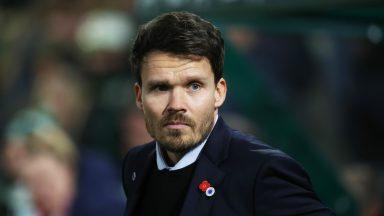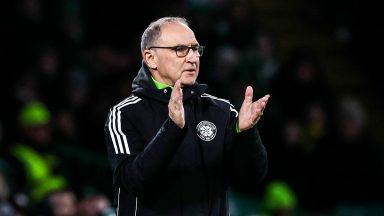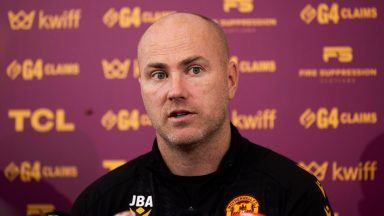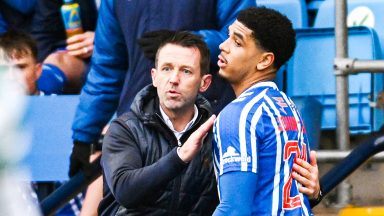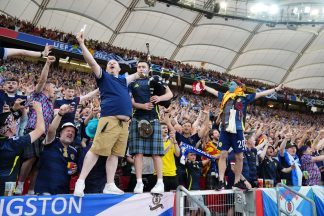The Tartan Army are arriving in Dublin en masse as Scotland look to continue their promising start to the Nations League campaign against the Republic of Ireland.
Steve Clarke’s side bounced back from their disappointing World Cup exit against Ukraine by defeating Armenia 2-0 at Hampden on Wednesday night.
The Scots travel to Dublin top of Nations League B1, although that could change by the 5pm kick-off time if Ukraine win or draw at home to Armenia on Saturday afternoon.
The Irish, meanwhile, are bottom of the group after defeats to Armenia and Ukraine – extending their wait for a victory in the Nations League to 12 games and counting.
Scotland received 2,500 tickets for Saturday’s match at the Aviva Stadium and the Tartan Army have been making themselves heard in the Irish capital.
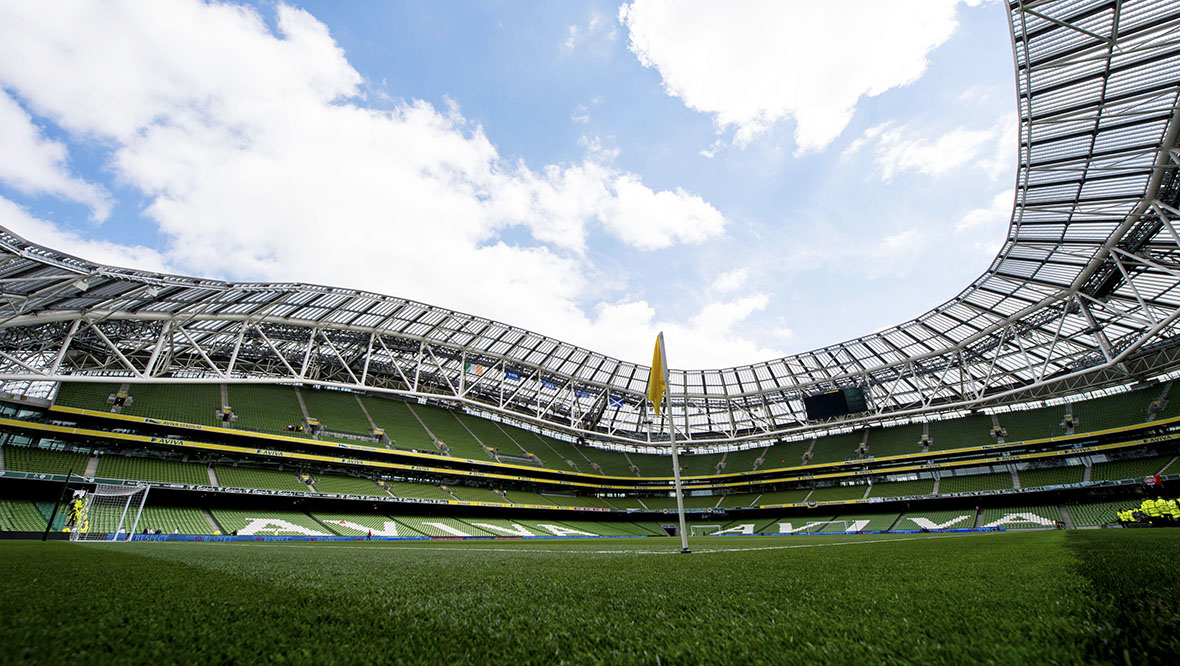 SNS Group
SNS GroupThe Temple Bar district is awash with Tartan and Saltires and the mood among Scotland fans is upbeat.
The nation may not be at Qatar 2022, but all eyes now are on the next Euros in Germany in 2004.
Who will start for Scotland in Dublin?
Two players who definitely won’t feature are St Johnstone goalkeeper Zander Clark and Leeds defender Liam Cooper as they have departed the camp for their respective weddings.
Rangers keeper Robbie McCrorie has been called up to replace Clark.
Steve Clarke made six changes for the Armenia match from the side that limped out of the World Cup.
Celtic right-back Anthony Ralston came in to make his international debut, while Jack Hendry, John Souttar and Scott McKenna were also drafted in as the defence was completely overhauled from the Ukraine play-off.
Ryan Christie and Stuart Armstrong completed the changes, with Cooper, Aaron Hickey, Grant Hanley, Scott McTominay, Billy Gilmour and Lyndon Dykes all dropping to the bench.
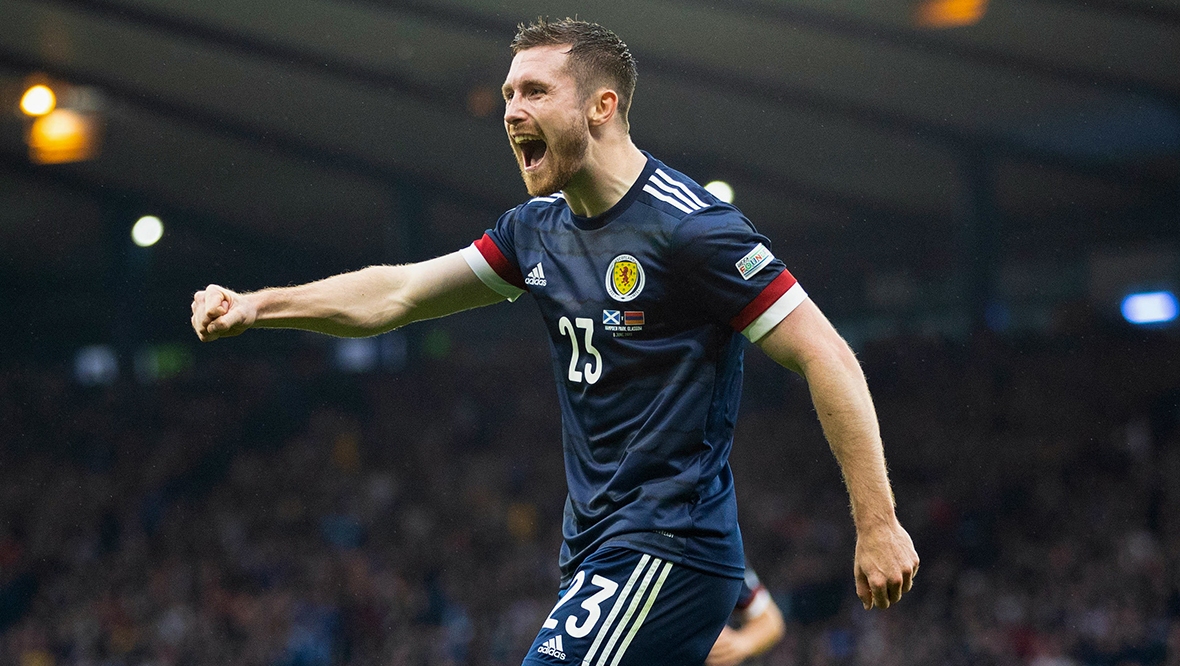 Craig Williamson via SNS Group
Craig Williamson via SNS GroupRalston made a strong case for selection in Dublin with an impressive debut performance against Armenia, capped by opening the scoring as he headed in Armstrong’s precise delivery from the left.
Clarke will probably stick with his preferred five-at-the-back system, but eyes will be on which permutation of players he uses in Dublin.
The Scots are currently in the middle of a run of three games in seven days, but Armstrong is confident they have a strong enough squad to cope with the demands.
“It’s a tight schedule,” he said. “We had a week before our first game but now we’re in a run of three games in a week so we don’t want to think too far ahead – it’s just one game at a time.
“We’ll have a bit of a recovery and then we’ve got a tough challenge on Saturday.
“There’s a lot of depth across all the different positions which helps a lot. There will be a lot of recovery until Saturday but we’ve got a lot of fresh faces if required. It’s a good squad with a lot of options.”
Che Adams started up front on Wednesday night, while Sunderland striker Ross Stewart made his debut after coming on as a late substitute.
Fellow striker Jacob Brown also made a fleeting appearance, so there are options for Clarke in attack and he is expected to utilise his squad with a long flight to Yerevan to come next week.
What happened last time Scotland visited Ireland?
Gordon Strachan took his Scotland side to Dublin in June 2015 for a Euro 2016 qualifier, having guided the national team to victory over Ireland in Glasgow earlier in the campaign.
Jon Walters gave the hosts the lead but Scotland drew level when Shaun Maloney’s effort found the back of the net via a deflection off John O’Shea.
The match ended 1-1 and kept Scotland two points ahead of their opponents in Group D.
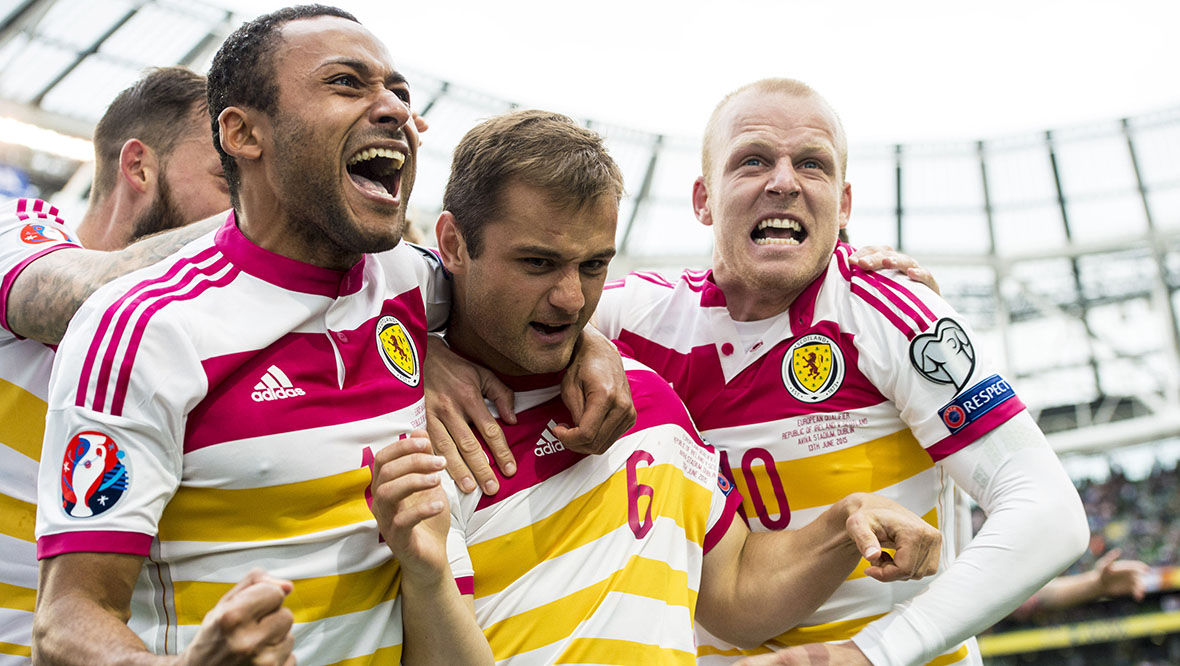 Craig Williamson via SNS Group
Craig Williamson via SNS GroupThe Tartan Army ventured back across the Irish Sea quietly confident of securing qualification to the Euros in France.
However, it was Ireland who had the last laugh when they beat world champions Germany to take advantage of the Scots’ 2-2 home draw with Poland to clinch third spot in the group and make it to the finals via a play-off victory over Bosnia and Herzegovina.
McGinn approaches 50 caps
John McGinn will pull on his country’s jersey for the 47th time if chosen by Steve Clarke.
All going well, the Aston Villa midfielder will reach and pass the half-century mark in the September set of Nations League fixtures and he is optimistic about what lies ahead for Scotland, if also rather wary of counting his caps too soon.
McGinn said: “Yes, closing in – I don’t want to jinx it. One was enough for me, to be perfectly honest.
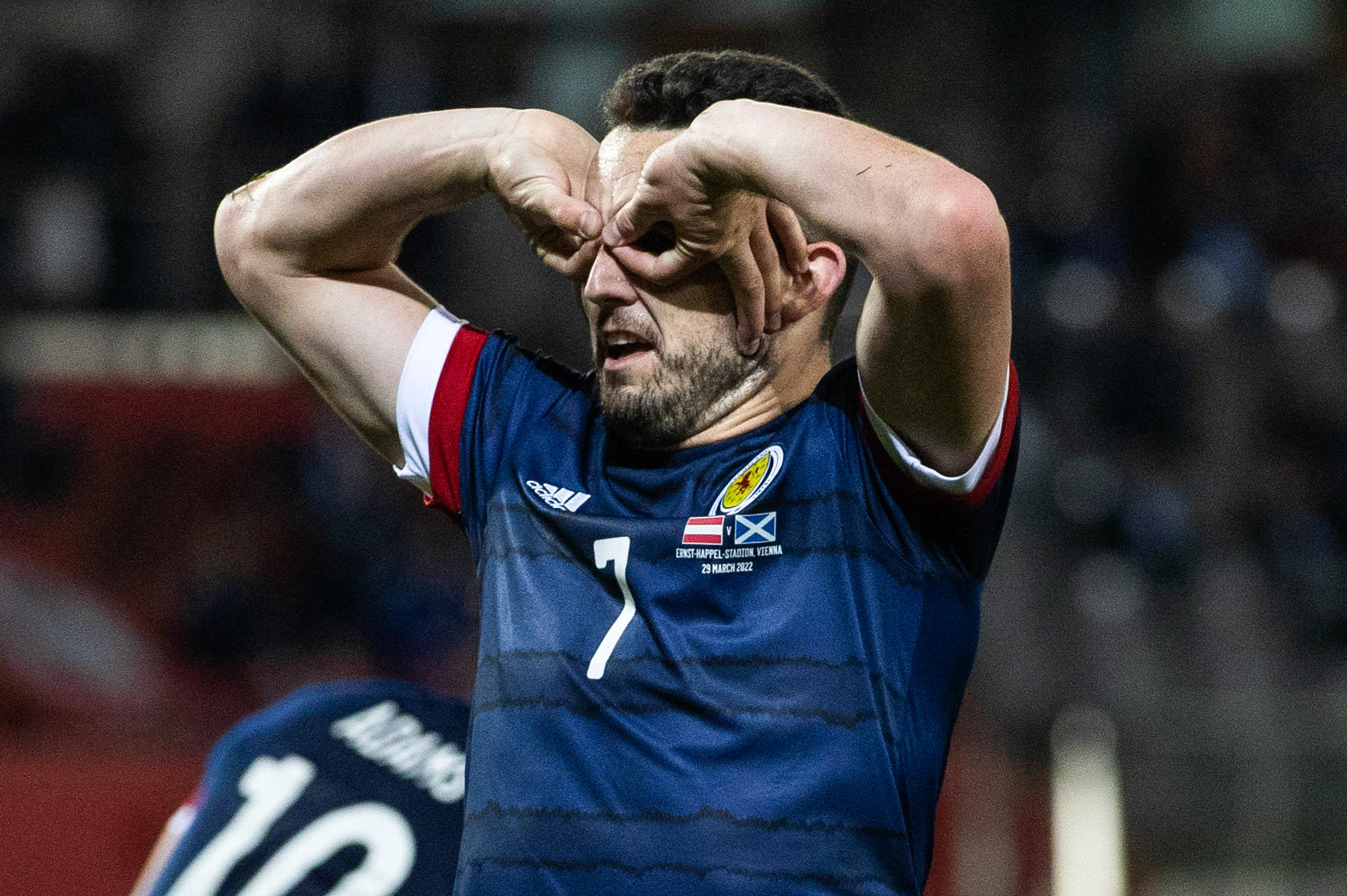 SNS Group
SNS Group“If you had asked me during my days at St Mirren ‘would I play 46 times for my country?’ I would have probably laughed.
“But I am closing in, hopefully I can get there and every time I get called up it is a proud moment for me.
“I feel as if I try to leave everything on the park, so I will continue doing that until the manager or if someone else tells me I am too old and I can’t run any more. But hopefully many more to come.
“There is a batch of us closing in on 50 and it is a sign of the commitment and loyalty to the cause.
“Maybe a few years ago the summer games might have been sniffed at and there would have been withdrawals left, right and centre, but the core of the squad remains the same and we are all focused on making this country successful again.
“There is really only Craig Gordon – he doesn’t look nearly 40 – but with David Marshall retiring, he is the old man of the pack and we have a right good batch which could qualify for the next two tournaments.”
View from the manager
Steve Clarke is wary of an Irish backlash at the Aviva Stadium following the hosts’ poor start to their Nations League campaign.
“I expect a tough challenge,” said the Scotland boss. “Anyone going to Dublin to play can expect a tough game. Obviously their last two games have gone against them but only by one goal.
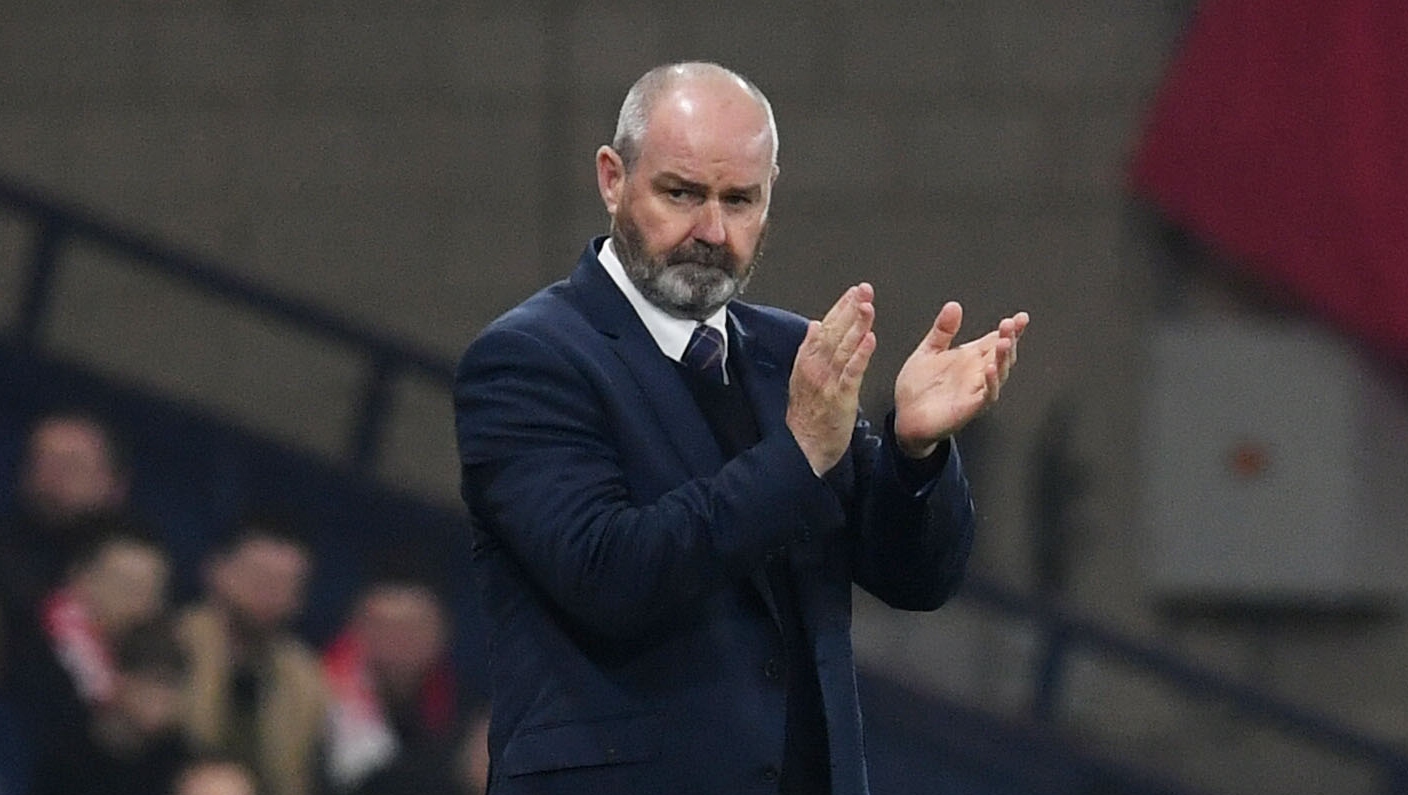 SNS Group
SNS Group“Previous to that, an eight-game run where they went unbeaten and within that eight-game run was Portugal and Belgium so we expect a tough game.
“They probably started the group with high expectations. It hasn’t worked out for them in the two games so far.
“They will be looking at the home game against Scotland and hoping to get a foothold in the group to make the games in September meaningful for them.
“It should be a good atmosphere, it should be a good game and hopefully we can send the Tartan Army home happy.”
What happens if Scotland win the group?
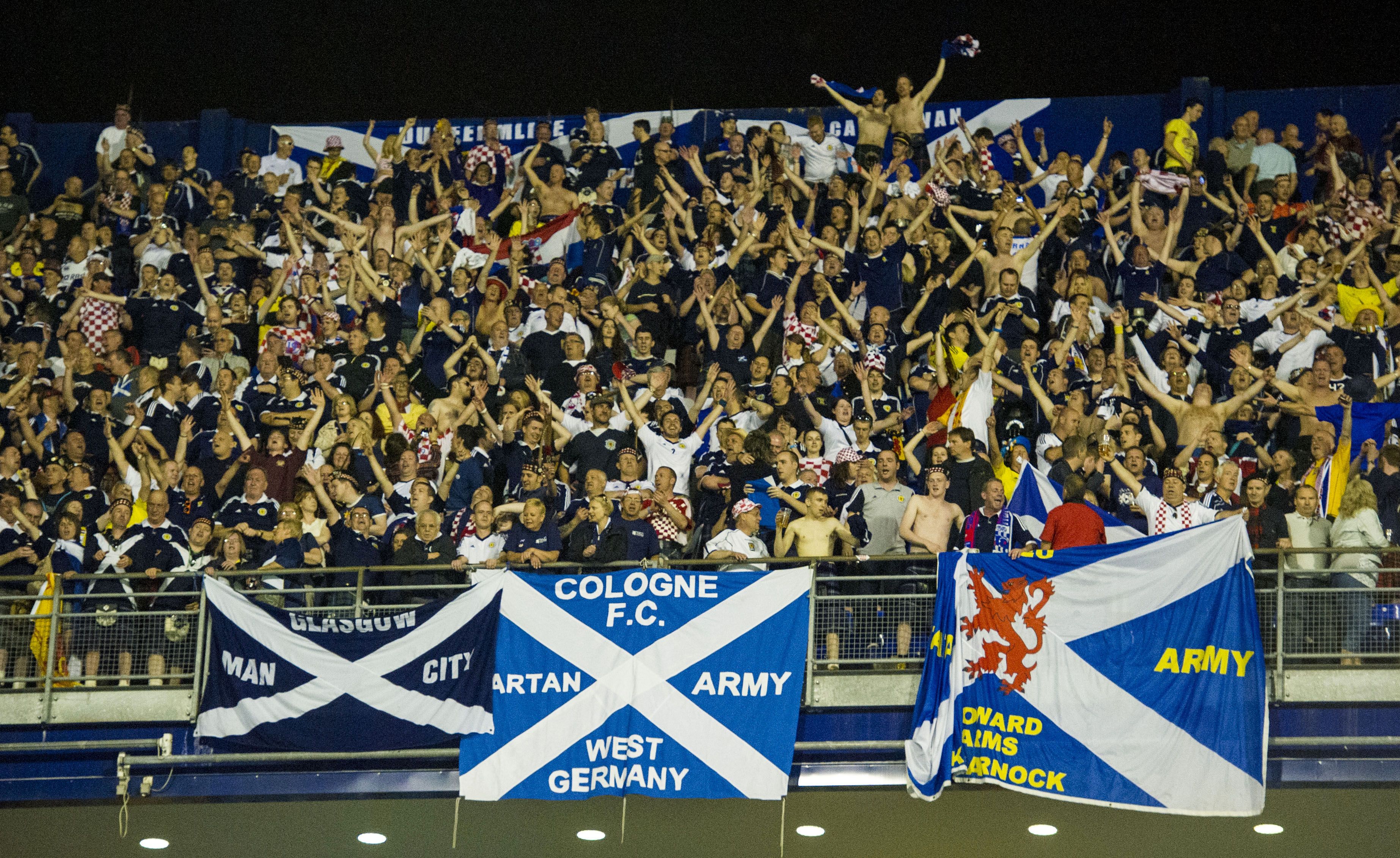 SNS Group
SNS GroupWinning the group would secure promotion for Scotland, first and foremost.
Topping group B1 would mean that in the next Nations League, Scotland would be up against the best sides in Europe. That would mean plenty of glamour games and regular tests against stronger sides.
The biggest reward on offer, though, is what the Nations League means for other competitions.
In the last two qualification campaigns – Euro 2020 and Qatar 2022 – the group winners have secured a play-off place to compete for one of the last spots at a finals. It only kicks in if the nation fails to qualify via the traditional means, but it’s a hugely valuable card to hold.
Scotland’s appearance at the last Euros, ending a 23-year wait for a major finals, came about precisely through that route, with Clarke leading the team to play-off wins over Israel and Serbia.
UEFA haven’t confirmed that the same format will apply this time round, but have said that three of the places at Germany 2024 will come from the Nations League group winners, suggesting that a repeat of the play-offs is on the cards.
The other benefit of winning the games is that it can help with the traditional route of qualifying. UEFA have stated that the draw seedings for the Euro 2024 qualifiers will be based on how teams finish in the 2022-23 Nations League.
Follow STV News on WhatsApp
Scan the QR code on your mobile device for all the latest news from around the country



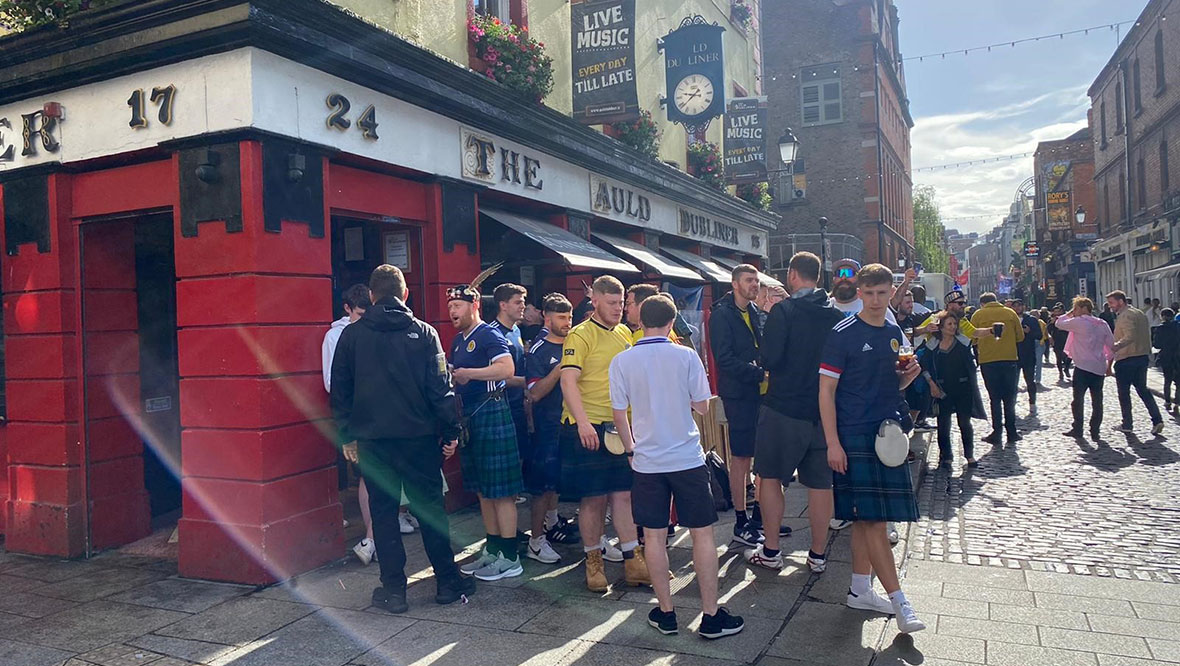 STV News
STV News
















